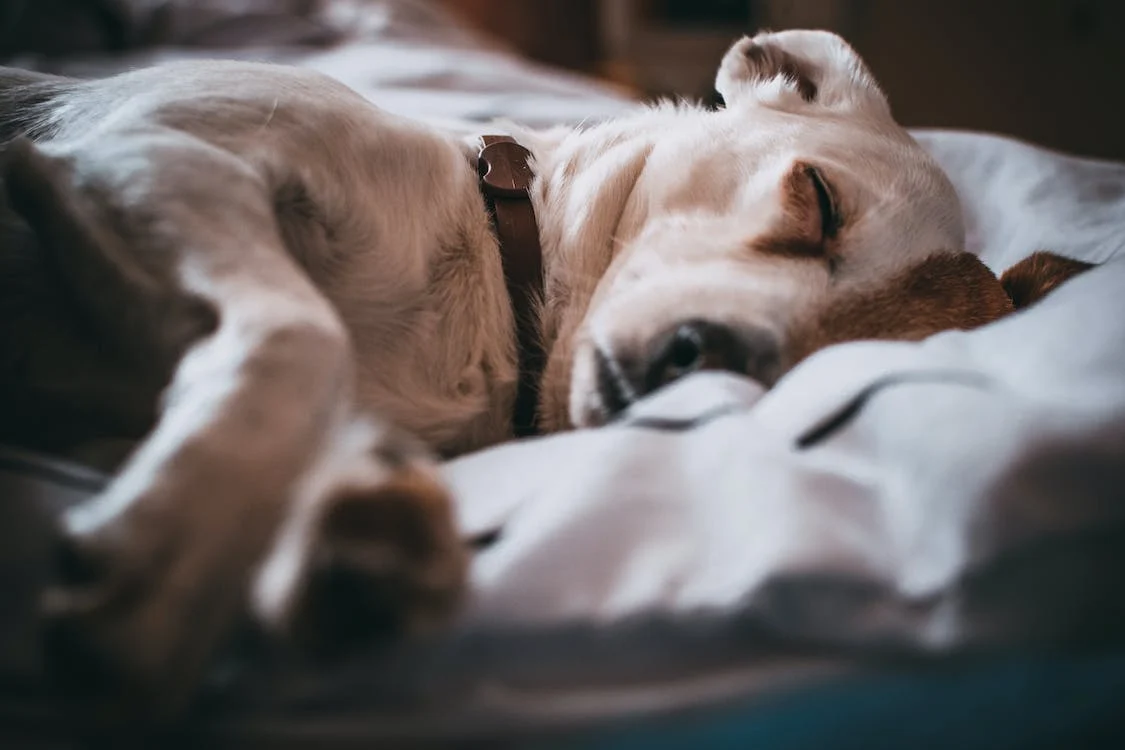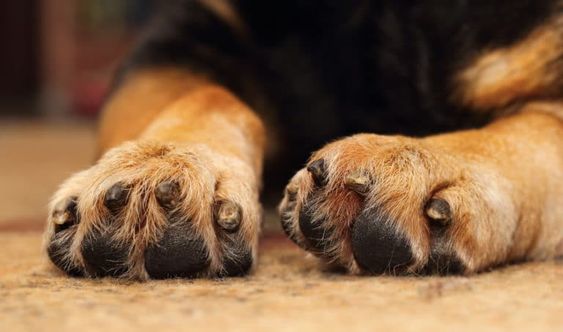You’re startled awake by your dog screaming, whining, and kicking in his sleep. While distressing to witness, episodes like these likely represent nightmares brought on by REM sleep. Understanding the sleep stages dogs cycle through and causes of canine nightmares can help you tell normal dreams from concerning sleep issues.
Do Dogs Experience REM Sleep and Dreaming?
Research confirms that dogs do undergo Rapid Eye Movement (REM) sleep just like humans. REM sleep is marked by brainwave activity similar to being awake. Key features of canine REM sleep include:
- Irregular breathing and pulse rate
- Muscle twitching and movements
- Vocalizations like yipping, growling
- Increase in brain temperature
During REM sleep, dogs actively dream, processing thoughts, experiences, and memories collected while awake much like people. Things perceived as threats while dreaming activate areas linked to emotions like the amygdala prompting reactive behaviors like whimpering, pawing, or snarling. From their perspective, the dream events are real experiences.

What Kinds of Dreams and Nightmares Do Dogs Have?
While we can’t know the precise content, plausibly dogs dream about:
- Everyday activities like eating, going for walks, playing with toys
- Interactions with people and other animals
- Chasing, hunting, or catching prey
- Past experiences both pleasant and scary
- Unfulfilled desires like getting food scraps or open access to favorite spaces
Pleasant dreams elicit tail wags or little barks. But anxiety-provoking dreams manifest as crying, yelping, shaking, or pacifying licks. Nightmares seem most likely when dogs are overexcited, stressed, or unwell.
What Causes Nightmares in Dogs?
Possible triggers for bad dreams and nighttime anxiety include:
- Stressful experiences like visits to the vet
- Introduction to new environments, people or animals
- Change in schedule or loss of familiar humans/pets
- Loud noises like fireworks or thunderstorms
- Separation anxiety when left alone
- Illness causing general discomfort or delirium
- Medication side effects impacting REM sleep
- Cognitive decline in elderly dogs
- Trauma or abuse histories resurfacing when dreaming
Understanding what worries your dog during the day allows you to anticipate restlessness at night. Support minimizes distressing dreams.

My Dog is Having a Nightmare – What Should I Do?
When your dog appears distressed by dream activity:
- Gently stroke or rub them to provide comforting contact without suddenly waking them.
- Speak reassuringly to settle without startling them awake. The familiarity of your voice soothes.
- Play calming music to influence relaxation during the remainder of their sleep cycle.
- Unless signs are severe, allow the REM cycle to fully complete to avoid disorientation.
- Upon waking, cheerfully comfort and praise your dog to overcome any lingering upset from bad dreams.
- If nightmares become frequent, evaluate their stress levels and contact your vet about anti-anxiety medications.
With patience and compassion, you can guide your pup through troubled REM cycles and restore peaceful rest. Their wellbeing affects how they sleep.
Why Did My Dog Suddenly Start Having Nightmares?
If your adult dog inexplicably begins suffering nightmares, potential causes to discuss with your veterinarian include:
- Illness, infection, or pain causing discomfort
- Side effects of new medications
- Declining cognitive function and dementia in senior dogs
- Loss of hearing or vision impairing orientation and triggering insecurity when sleeping
- Development of storm, noise, or other phobias
- Anxiety or depression due to changes in life circumstances
While occasional nightmares are normal, frequent distressed sleep may indicate underlying medical or behavioral issues needing evaluation.
Should I Wake My Dog From a Nightmare?
Ideally, avoid abruptly waking your dog from nightmares. The disruption may cause more disorientation. But if signs become extreme such as seizures or risking injury, gently wake them. Equally console them whether dreams or when awake. Your comfort steadies them.
Conclusion
Like their human companions, dogs experience entertaining, pleasant dreams as well as occasional disturbing nightmares as part of healthy REM sleep cycles. When bad dreams strike your canine friend, remain calm and comforting to settle them through the episode. Address excessive nighttime anxiety with your veterinarian. Sweet dreams support canine health and quality of life, so help your pup get the best sleep possible!


